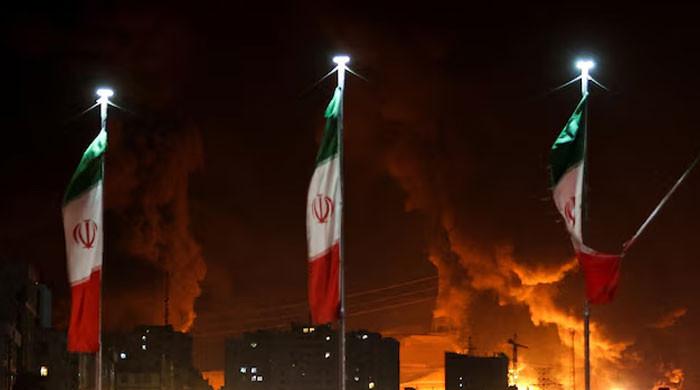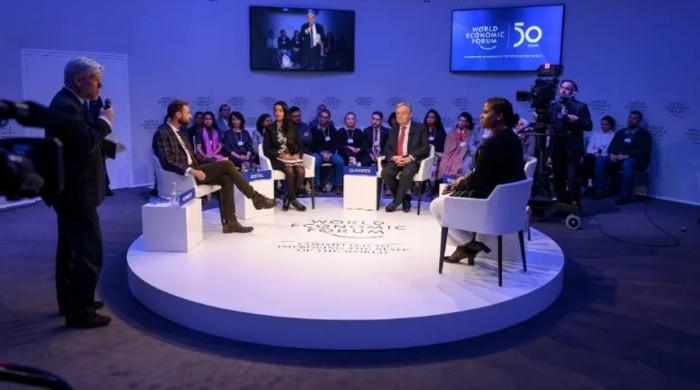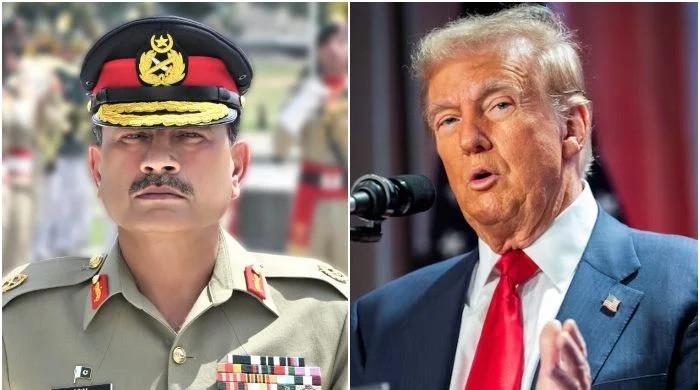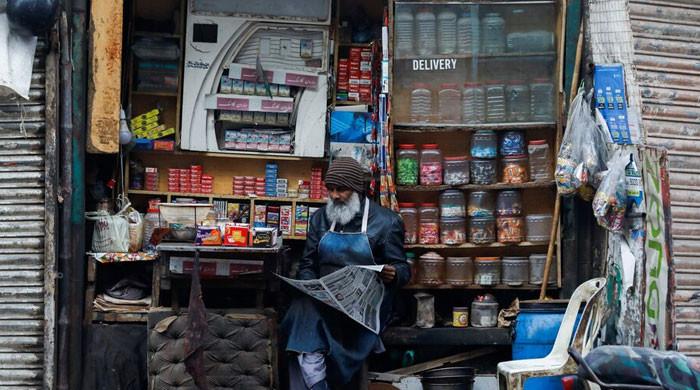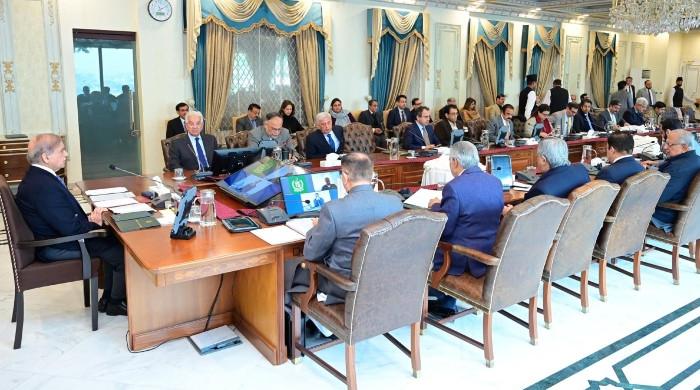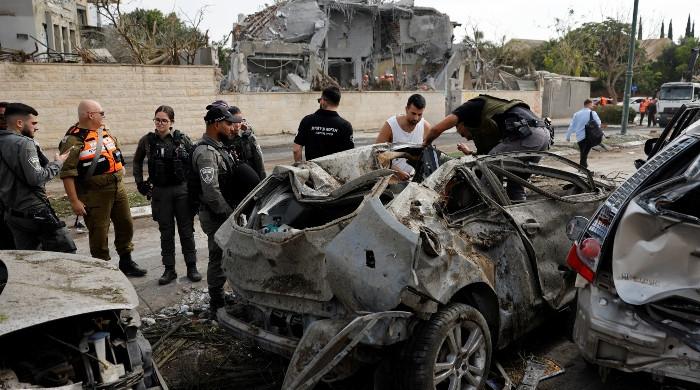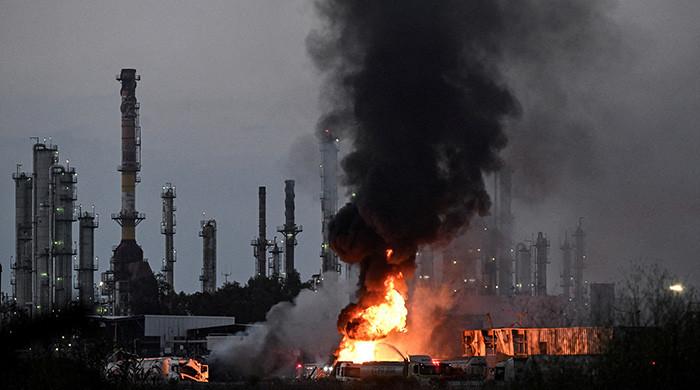How COVID-19 is changing policing in Pakistan
Police have adopted new measures to cope with the outbreak and the mounting pressure
April 24, 2020
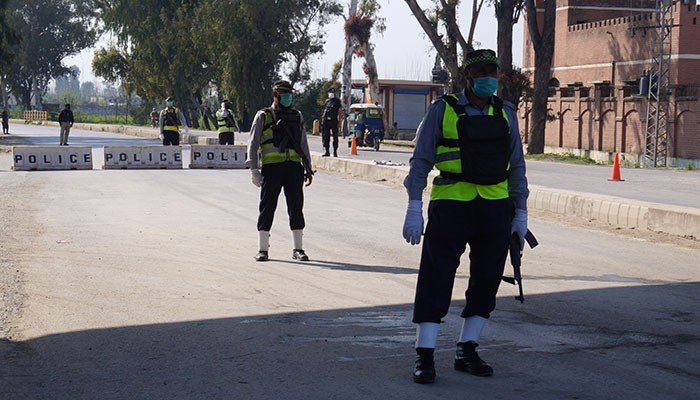
Since the outbreak of the COVID-19 pandemic, the police in Pakistan have had a tough time. From tracing suspected cases of the virus to interrogating criminals, while maintaining a distance, nothing has been easy. To make matters more complicated, some police officers began falling sick and tested positive for the deadly virus.
In these extraordinary circumstances, the police force needed to think on its feet. Which is why recently it adopted new measures to cope with the outbreak and the mounting pressure.
I spoke to senior police officers in three provinces, and poured over internal documents to understand what the new guidelines would be for the men and women in uniform.
For starters, police investigating teams, in several parts of Pakistan, have been instructed to wear face masks and gloves, at all times, especially during a probe. Suspects, criminals and even terrorists will also be provided a mask and gloves during their time in custody. The same Standard Operating Procedures (SOPs) must be followed when presenting a suspect in court for trial or to seek his remand.
In Sindh, two weeks back, the police also sent a proposal to the provincial government. Since the Sindh assembly was not in session, it asked the government to consider drafting and passing an ordinance instead, in which senior police officers or magistrates are empowered to impose heavy fines on those violating the lockdown. This would cut down on the lengthy process of arresting a person, then sending them to a lock up and finally to court.
But, it appears that the continued social and political distancing between the federal government and Sindh has left this important measure in limbo.
In other provinces, police chiefs have issued SOPs keeping ground realities in mind, But a common directives in all provinces is for police officers to regularly wash their hands with soap, wear masks and keep a social distance. Prison washrooms are also being kept clean.
Still, these SOPs are difficult to follow, say senior cops, when catching suspects involved in terrorism or in other high profile crimes. Then also face stiff resistance from the general public when monitoring violations of the lockdown. A case in point was what happened in Karachi’s Orangi Town and in Liaquatabad after Friday prayers recently. With the Holy month of Ramazan starting soon, this could get more complicated.
Another important SOP for police officers is to avoid physical interactions with suspects during questioning. In other words, avoid torturing them.
The police in Punjab, Sindh and Khyber Pakhtunkhwa, as per official documents, have been told to avoid inviting personal guests to police stations, and to always wear gloves especially when receiving complaints or registering an F.I.R. However, I could not get hold a copy of instructions for Balochistan.
In KPK, the police use drones to monitor the implementation of the lockdown in public areas and have placed cameras on police vehicles to keep an eye out for violators. “We are well-aware of what is happening,” Sanaullah Abbasi, the inspector general police KPK, told me over the phone, “We have taken all precautionary measures and the use of technology helps us monitor and ensure that social distancing rules are being followed.”
Over in Sindh, the IGP Mushtaq Mehar insists that all criminals and accused should be protected as well, by being given a face mask and gloves to each. “These SOPs also include explanations on how to maintain a social distance while questioning or interrogating,” he told me.
Rai Tahir, the Superintendent of Police in the Counter Terrorism Department Punjab, confirmed that the IGP of the province issued a comprehensive 18-points guideline for all police stations, last month. “These SOPs also include instructions for the team handling investigation and interrogating suspects," he told me over the phone, “and on senior police officers attending open courts.”
Meanwhile, prisons in Pakistan are already overcrowded. Take the central jail Karachi, which has a capacity of 2,400 people but is hosting over 6,000. In order to deal with this, in light of the pandemic, jail authorities have been advised to not lock up an accused for a wrongdoing where the punishment is only up to six months. Instead, its fine should be increased from Rs.1,000 to Rs. 10,000 or Rs. 50,000.
As for the number of infected police officers, in the northwestern province, only one case has been recorded to date, in Mardan. In the city of Karachi, in Sindh, 15 cases have been reported.
In all probabilities COVID-19 is here to stay longer than expected. The federal and provincial government should also look into long terms measures, such as passing appropriates laws, to protect our law enforcement agencies.
Abbas is a senior columnist and analyst of GEO, The News and Jang. He tweets @MazharAbbasGEO




